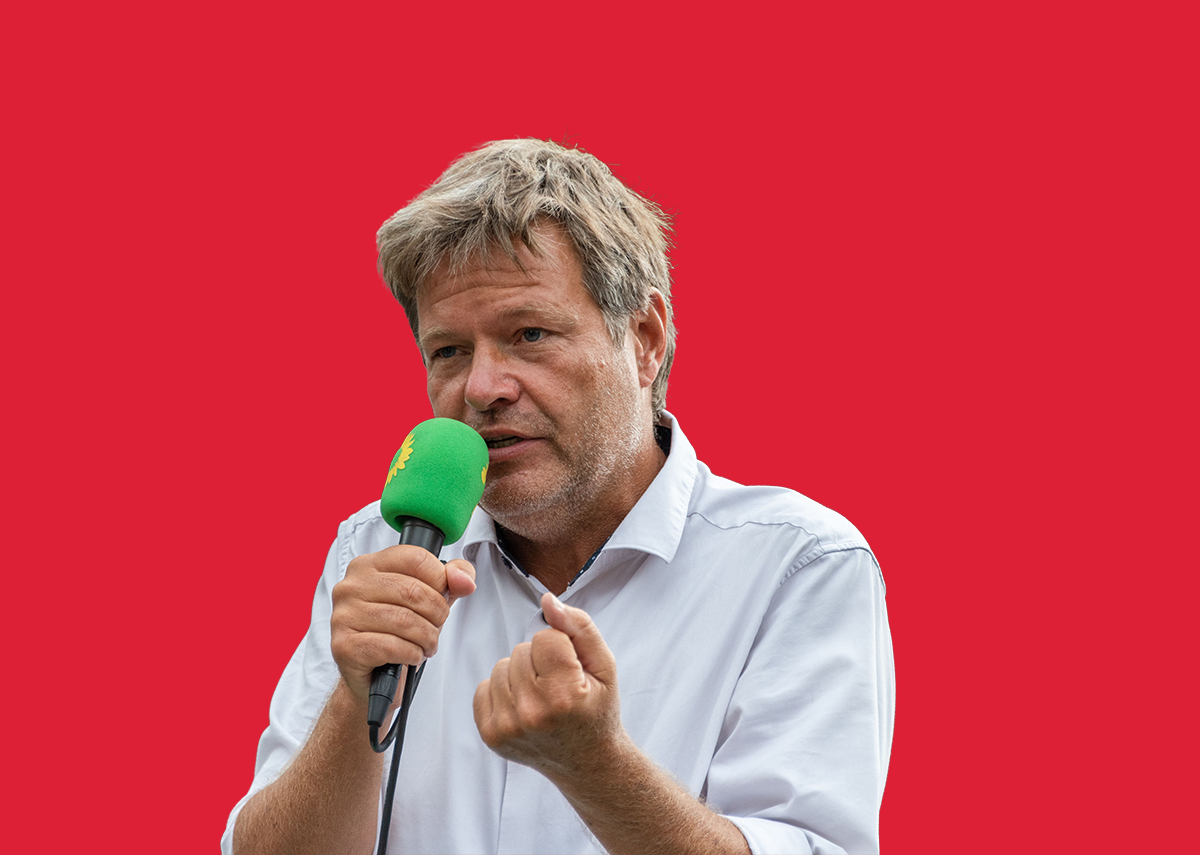
Robert Habeck, Deputy Chancellor and Federal Minister for Economic Affairs and Climate Protection of the Federal Republic of Germany – Source: penofoto|Shutterstock.com
DIW study reveals shortcomings: Why Germany still has some catching up to do in wind power and electromobility
Action needed regarding renewable energies: Why the German government has not yet achieved its targets by 2030
The German government's energy targets are still a long way off, as a recent study by the German Institute for Economic Research (DIW Berlin) shows. Although the expansion of onshore wind power already represents progress of around 51 percent toward the 2030 target, the expansion of offshore wind power, at only 28 percent, has lagged significantly behind. The situation is even bleaker for electromobility: Of the targeted 15 million electric cars, only about 1.2 million are currently registered, which corresponds to a rate of just 7.8 percent. The number of charging points for electric cars is similarly unsatisfactory.
The experts at the DIW (German Institute for Economic Research) have also calculated that the current expansion rate is too slow for almost all indicators to still achieve the 2030 targets. They compared the expansion trend of the last twelve months with the rate that would be necessary to reach the 2030 targets. This shows that both the expansion of onshore wind power and, in particular, offshore wind power are lagging behind photovoltaics. This indicates an urgent need for action regarding wind power. The expansion of electromobility is also still progressing far too slowly.
To achieve the German government's energy targets by 2030, significant efforts and measures are therefore required. Increased investment in the expansion of wind power, both onshore and offshore, is essential to boost electricity generation from renewable energy sources. Furthermore, obstacles and bureaucratic hurdles to the construction of wind farms must be reduced to enable faster progress.
Targeted measures should also be taken in the field of electromobility to accelerate its expansion. These include financial incentives such as government subsidies and tax breaks for the purchase of electric vehicles. It is also important to provide a comprehensive network of charging points for electric cars to reduce range anxiety and make the switch to electromobility more attractive.
Furthermore, investment should be made in the research and development of more powerful batteries to increase the range of electric vehicles and reduce their charging times. Close cooperation between policymakers, businesses, and research institutions is essential to advance innovative technologies and reduce dependence on fossil fuels.
It is also important to educate the public about the benefits of renewable energies and electromobility in order to gain acceptance and support among the population. Educational and information campaigns can help raise awareness of sustainable energy sources and environmentally friendly mobility.
Achieving energy goals therefore requires a holistic approach encompassing political measures, economic incentives, technological innovations, and broad public participation. Only through a consistent and accelerated expansion of renewable energies and electromobility can Germany achieve its climate targets and contribute to the global energy transition.
Catching up needed in photovoltaics, wind power and electromobility: Germany's energy transition is moving at a snail's pace
Current headlines:
“Slowing down the energy transition: Germany risks missing its 2030 target”
“Falling behind expectations: Why Germany’s energy transition is stalling”
“Energy transition in danger: Germany risks falling behind”
“The race against time: Why Germany must act now to accelerate the energy transition”
The speed at which Germany's energy transition is progressing is causing increasing concern, as it is significantly too slow to achieve the energy policy targets for 2030. This is particularly evident in the expansion figures for various areas of renewable energy and electromobility.
A worrying example is photovoltaics, which plays a central role in renewable energy electricity generation. According to current data, the expansion rate of photovoltaics is only 49 percent of the average rate required to meet the 2030 targets. This means that the expansion of solar energy is progressing far too slowly to meet the demand for climate-friendly electricity generation.
The expansion of wind power, both onshore and offshore, is lagging far behind expectations. For onshore wind power, the current expansion rate is only 33 percent of the required average rate. This shows that the construction of new onshore wind farms is not progressing quickly enough to generate the planned amounts of renewable energy. Even more alarming, however, is the situation for offshore wind power, where the expansion rate is just 22 percent of the 2030 target. This is a clear indication that urgent action is needed to fully exploit the potential of offshore wind energy.
Another area where Germany is lagging behind is electromobility. Instead of reaching the targeted 100 percent, the expansion rate of battery-electric passenger cars is currently only 24 percent. This means that the transition to zero-emission vehicles is far too slow to significantly reduce traffic emissions and achieve climate targets. The development of public charging points for electric vehicles is similarly inadequate, with an expansion rate of only 27 percent. This poses an obstacle to the acceptance and widespread adoption of electromobility, as sufficient charging infrastructure is essential for the widespread use of electric vehicles.
In light of these alarming expansion figures, it is imperative that the German government and other stakeholders intensify their efforts to advance the energy transition. Accelerated installation of photovoltaic systems is needed to significantly increase the share of solar energy in electricity generation. Furthermore, bureaucratic hurdles and permitting processes for the construction of wind farms must be revised and expedited to promote expansion both onshore and offshore.
In the field of electromobility, financial incentives such as government subsidies and tax breaks for the purchase of electric vehicles are essential to stimulate demand. A comprehensive and reliable charging infrastructure is also crucial to reducing range anxiety and making the switch to electromobility more attractive.
Furthermore, increased investment in research and development is needed to develop more powerful batteries that extend the range of electric vehicles and reduce charging times. Collaboration between policymakers, businesses, and research institutions plays a crucial role in driving innovation and reducing dependence on fossil fuels.
The challenges of the energy transition require a comprehensive and coordinated approach that includes political measures, economic incentives, technological innovations, and broad public participation. Only through accelerated and determined implementation can Germany achieve its 2030 energy targets and contribute to the global energy transition.

